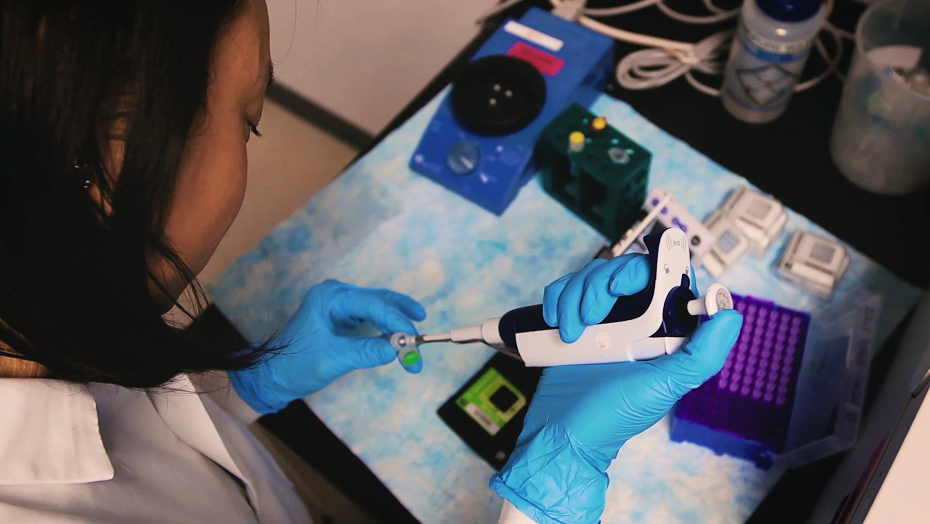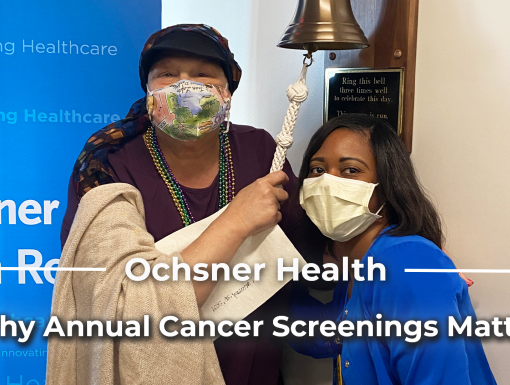
Cancer Clinical Trials: Debunking Common Misconceptions
Clinical trials, particularly those designed to fight cancer, are vital to the development of solutions when working to find better ways to treat this disease. By participating in clinical trials, patients may have access to treatment options that are not otherwise available to them and researchers gain important insights that lead to better, safer, more effective treatments.
Early phase clinical trials (Phase I and II), like those offered by the Ochsner Cancer Institute’s Precision Cancer Therapies Program, allow for patients to receive innovative therapies years before they are available commercially. Unfortunately, there are many common misconceptions around cancer trials that prevent patients from benefiting from therapies that can be life-saving. According to the National Cancer Institute, nearly 40% of men and women in the United States will be diagnosed with cancer at some point in their lifetime, yet only about 3% of adult cancer patients participate in clinical trials, with the percentage being even lower in Louisiana.
Here are a few of the most common misconceptions surrounding cancer trials:
Clinical trials are only for patients who have exhausted all other options
One common misconception is that clinical trials, particularly early phase clinical trials, are only for people who are dying, as a last-ditch effort. They think that these trials are strictly focused only on dose finding and defining the toxicities associated with the pharmaceuticals being tested, and that the trials benefit very few patients.
The truth is that the days of trials simply being used to define a dose or uncover a side effect are largely behind us. In the modern era of early phase clinical trials, many studies focus more on using precision medicine techniques to pair patients with the correct trial, using the patient’s underlying biology to ensure that those in the trial are the best candidates to benefit from the therapies being tested. By using this approach, positive outcomes have dramatically increased for trial participants in recent years
Clinical trials are expensive
While clinical trials are extremely expensive to run, this comes at no additional cost to the patient. In fact, clinical trials are no more expensive to the patient than standard forms of cancer treatment and, in many cases, patients end up paying less than they would for conventional treatments. Typically, the costs that would normally be billed to the patient’s insurance company are billed as normal and any additional costs are covered by the trial sponsor. On top of that, in Louisiana, there is a very progressive law that, under many circumstances, decrees that health insurance companies must pick up any cost that the trial does not cover for cancer patients.
At the Ochsner Cancer Institute, the Office of Grants Management works to ensure that each patient receives the maximum amount of benefits entitled to them as part of the study, including expenses like lodging, dining and travel stipends in some cases.
Clinical trials are dangerous
All treatments, whether conventional or part of a clinical trial, have their risks. In a clinical trial, there may be some additional risks that we don’t fully understand due to the exploratory, research based nature of the trial. But with that said, patients on clinical trials are monitored much more closely than those on conventional treatment, including being assigned to dedicated nursing staff and scheduled for more visits and testing to ensure that the trial is not having a negative effect on them.
To ensure patient safety is being maintained at a very high level, an Institutional Review Board is in place to monitor the trial throughout the entire process to make sure that all standards of care are being met. This extra level of oversight ensures that nothing is missed when it comes to providing the safest and highest quality of care to clinical trial patients.
Cancer clinical trials may give me a placebo or no therapy at all
In most early phase cancer trials, everyone in the trial receives the drug with the main variable being the dosage levels for each patient. Cancer trials are not about experimenting blindly on patients. It would be unethical to withhold therapy from a patient who would benefit from treatment. Placebos are never used in place of treatment and are rarely used in general.
Through the Precision Cancer Therapies Program, a vital program of the Ochsner Cancer Institute, cancer patients are connected with access to cutting-edge, early phase clinical trials, previously unavailable in the Gulf South. The program provides patients with a new hope by uncovering new personalized treatment options, combining Ochsner Cancer Institute’s clinical expertise with resources from the world-renowned Translational Genomics Research Institute.
Learn more about the Ochsner Cancer Institute here.


